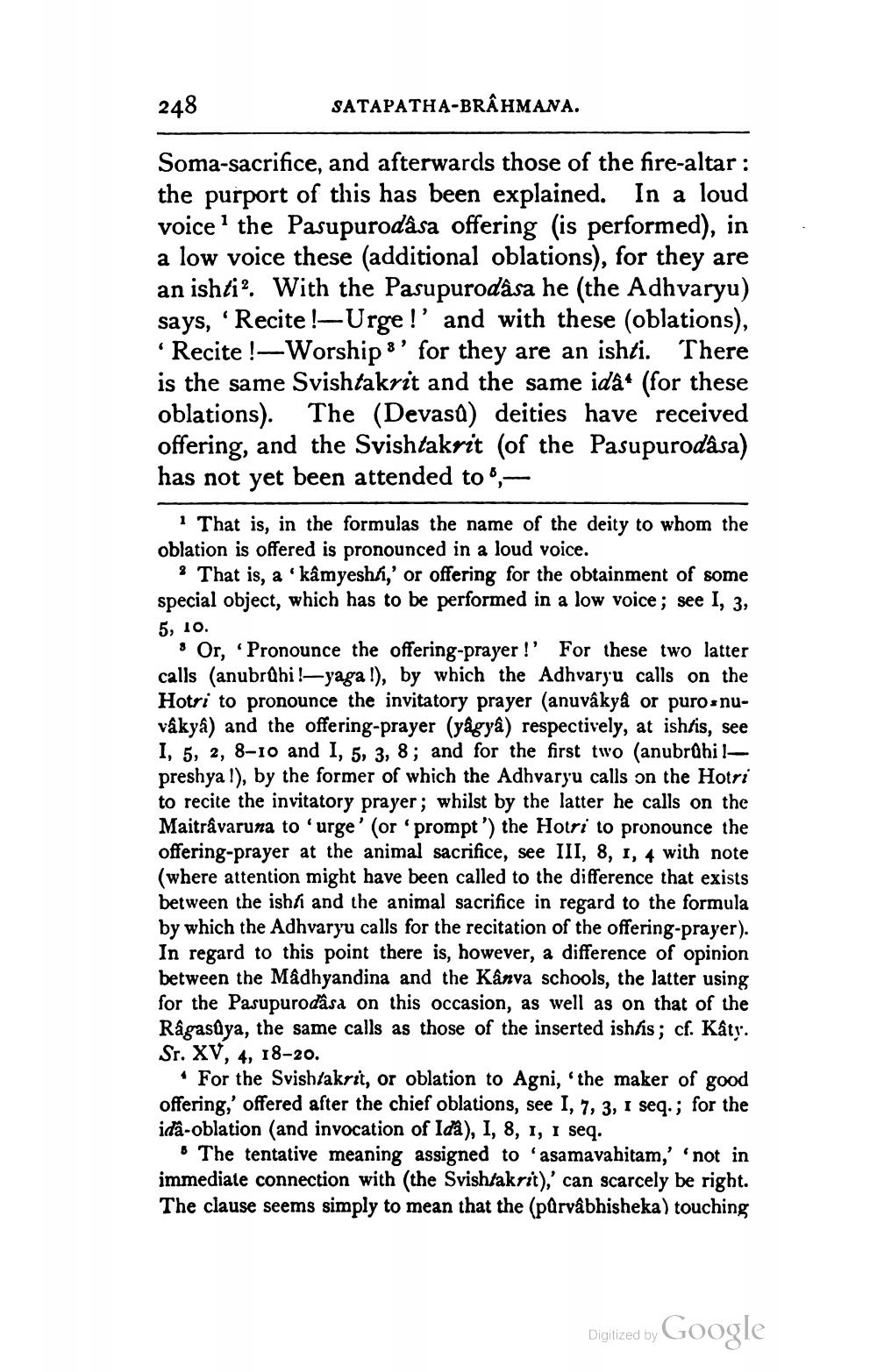________________
248
SATAPATHA-BRAHMANA.
Soma-sacrifice, and afterwards those of the fire-altar : the purport of this has been explained. In a loud voice the Pasupurodâsa offering (is performed), in a low voice these (additional oblations), for they are an ishti?. With the Pasupurodása he (the Adhvaryu) says, 'Recite !-Urge!' and with these (oblations), "Recite !-Worship 8' for they are an ishti. There is the same Svishtakrit and the same idâ(for these oblations). The (Devasa) deities have received offering, and the Svishtakrit (of the Pasupurodása) has not yet been attended to ",—
1 That is, in the formulas the name of the deity to whom the oblation is offered is pronounced in a loud voice.
3 That is, a 'kâmyeshi,' or offering for the obtainment of some special object, which has to be performed in a low voice; see 1, 3, 5, 10.
. Or, Pronounce the offering-prayer !' For these two latter calls (anubrûhi !-yaga !), by which the Adhvaryu calls on the Hotri to pronounce the invitatory prayer (anuvâkyâ or puros nuvâkya) and the offering-prayer (yágya) respectively, at ishtis, see I, 5, 2, 8-10 and I, 5, 3, 8; and for the first two (anubrûbilpreshya !), by the former of which the Adhvaryu calls on the Hotri to recite the invitatory prayer; whilst by the latter he calls on the Maiträvaruna to'urge' (or 'prompt') the Hotri to pronounce the offering-prayer at the animal sacrifice, see III, 8, 1, 4 with note (where attention might have been called to the difference that exists between the ishti and the animal sacrifice in regard to the formula by which the Adhvaryu calls for the recitation of the offering-prayer). In regard to this point there is, however, a difference of opinion between the Mâdhyandina and the Kanva schools, the latter using for the Pasupurodầsa on this occasion, as well as on that of the Râgasûya, the same calls as those of the inserted ishhis; cf. Kâty. Sr. XV, 4, 18-20.
For the Svishtakrit, or oblation to Agni, 'the maker of good offering,' offered after the chief oblations, see I, 7, 3, 1 seq.; for the ida-oblation (and invocation of Idå), I, 8, 1, I seq.
The tentative meaning assigned to 'asamavahitam,''not in immediate connection with (the Svishtakrit),' can scarcely be right. The clause seems simply to mean that the (parvabhisheka) touching
Digitized by Google




